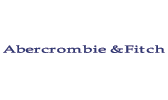Abercrombie & Fitch Co. (A&F) is a U.S. based clothing store that sells men’s, women’s, and kids’ casual clothes and accessories. It has some 1,125 stores in the U.S., Canada, and the U.K., and also sells via its catalog and website. It uses carefully selected college-age sales staff and models in their 20’s to give its stores with an upscale fraternity house feel. A&F also runs a fast-growing chain of some 515 teen stores called Hollister Co. and a chain targeted at boys and girls ages seven to 14 called abercrombie.[1]
Contents
Criticism
Worker Rights
- Chief Executive Officer Michael S. Jeffries had total pay of $23,198,271 in 2008 according to the AFL-CIO Executive PayWatch Database. In 2007 he took in $11,205,025.[2]
- Sweatshop Case Settles for $20 Million, September 27, 2002. Three overseas sweatshop lawsuits involving dozens of the United States’ largest retailers and a 30,000-member class of garment workers have settled for $20 million. Abercrombie & Fitch, Target, Gap Inc. and J.C. Penney Co. Inc. are among the retailers and manufacturers that agreed Wednesday to settle suits alleging that factory workers on the U.S. commonwealth island of Saipan were subject to exploitative conditions.
- International Labor Rights Forum Inducts A&F Into Its 2010 Sweatshop Hall of Shame 2010 The Sweatshop Hall of Shame 2010 highlights apparel and textile companies that use sweatshops in their global production. Hall of Shame inductees have evaded fair labor standards and often are slow to respond or provide no response at all to any attempts by the International Labor Rights Forum (ILRF), workers, or others to improve working conditions.
- Court Rules Against Strict Dress Code, June 17, 2005. Employees of Abercrombie & Fitch filed a class action lawsuit against their employer. The lawsuit claimed a strict dress code and policy forced employees to buy the clothes to wear on the job. Sales representatives will receive $130, while managers will be awarded up to $400 each.
- More Dress Code Rules, December 20, 2005. A class action lawsuit has been filed in the state of Oregon against Abercrombie & Fitch on behalf of current and former employees. The suit alleges the company forced employees to buy and wear its clothes. This caused employees’ paychecks to fall below minimum wage and thus broke Oregon state minimum wage laws. This dress code also violates an Oregon law that states employers cannot require employees to buy elaborate or expensive uniforms without compensation. The suit claims that the company required the plaintiffs to purchase and wear the outfits that were being promoted at that time. Additionally, the employees were prohibited from wearing items that had been marked for sale.
- $2 Million Settlement for Failure to Pay Overtime, January 13, 2006. More than 250 managers who worked for Abercrombie & Fitch across California between July 10, 1998, and April 30, 2004 filed a class action lawsuit for improperly classifying of store managers to avoid paying overtime. Managers performed duties that were entitled to overtime pay, yet they received no extra compensation for working over eight hours a day and 40 hours a week. A Los Angeles Superior Court Judge has awarded a $2 million class action settlement.
Human Rights
- Stereotyping Asians, April 23, 2002. Abercrombie & Fitch sold a shirt that featured the slogan “Wong Brothers Laundry Service—Two Wongs Can Make It White” with smiling figures in conical straw hats, a depiction of early Chinese immigrants. The company discontinued the designs and apologized after a boycott was started by an Asian American student group at Stanford University.
- Stereotyping Girls In 2005, the Women and Girls Foundation of Southwest Pennsylvania launched a “girlcott” of the store for selling T-shirts that read, “Who needs brains when you have these?”. The campaign received national coverage on The Today Show, and the company pulled the shirts from stores.[3]
- Discriminating Against Women, African Americans, Asian Americans, and Latinos, January 24, 2005. A $40 million settlement has been reached in the discrimination class action lawsuit filed on behalf of all women and all African Americans, Asian Americans and Latinos who either applied for a job at an Abercrombie store (or attempted to do so and were discouraged) or were employed there between February 24, 1999 and November 16, 2004. The stores include Abercrombie & Fitch, Abercrombie kids and Hollister stores.
Business Ethics
- Abercrombie & Fitch Faces Row Over Donation to Buy Advertising for Itself, March 12, 2008. Commercial Alert, which is an organization that warns against the increasing advertising that is encroaching into our lives, writes – With its vast billboards displaying rippling six packs, heaving cleavages and jeans at half mast, the American fashion retailer Abercrombie & Fitch has few qualms about using sex appeal to sell clothes. So activists have questioned whether its name should be above the door of a children’s hospital. One of America’s largest pediatric institutes, the Nationwide Children’s Hospital in Columbus, Ohio, is facing angry protests over a decision to grant “naming rights” to Abercrombie & Fitch in return for a $10 million donation.
Praise
Human Rights
- Abercrombie & Fitch received a top score (100 out of 100) from the Human Rights Campaign which puts out a buying guide that rates corporations on policies that affect gays and lesbians.http://www.hrc.org/buyersguide
Business Ethics
- Does Not Sell Fur, March 17, 2009. PETA praised Abercrombie & Fitch for refusing to sell fur. There is a growing list of retailers that refuse to sell fur, including J.C. Penney, J. Crew, Polo Ralph Lauren, Calvin Klein, Forever 21, Overstock.com, Wet Seal, Abercrombie & Fitch, Target, and Banana Republic. In the case of J.C. Penney, it took PETA almost 10 years to convince them.http://www.furisdead.com
Brands and Subsidiaries






